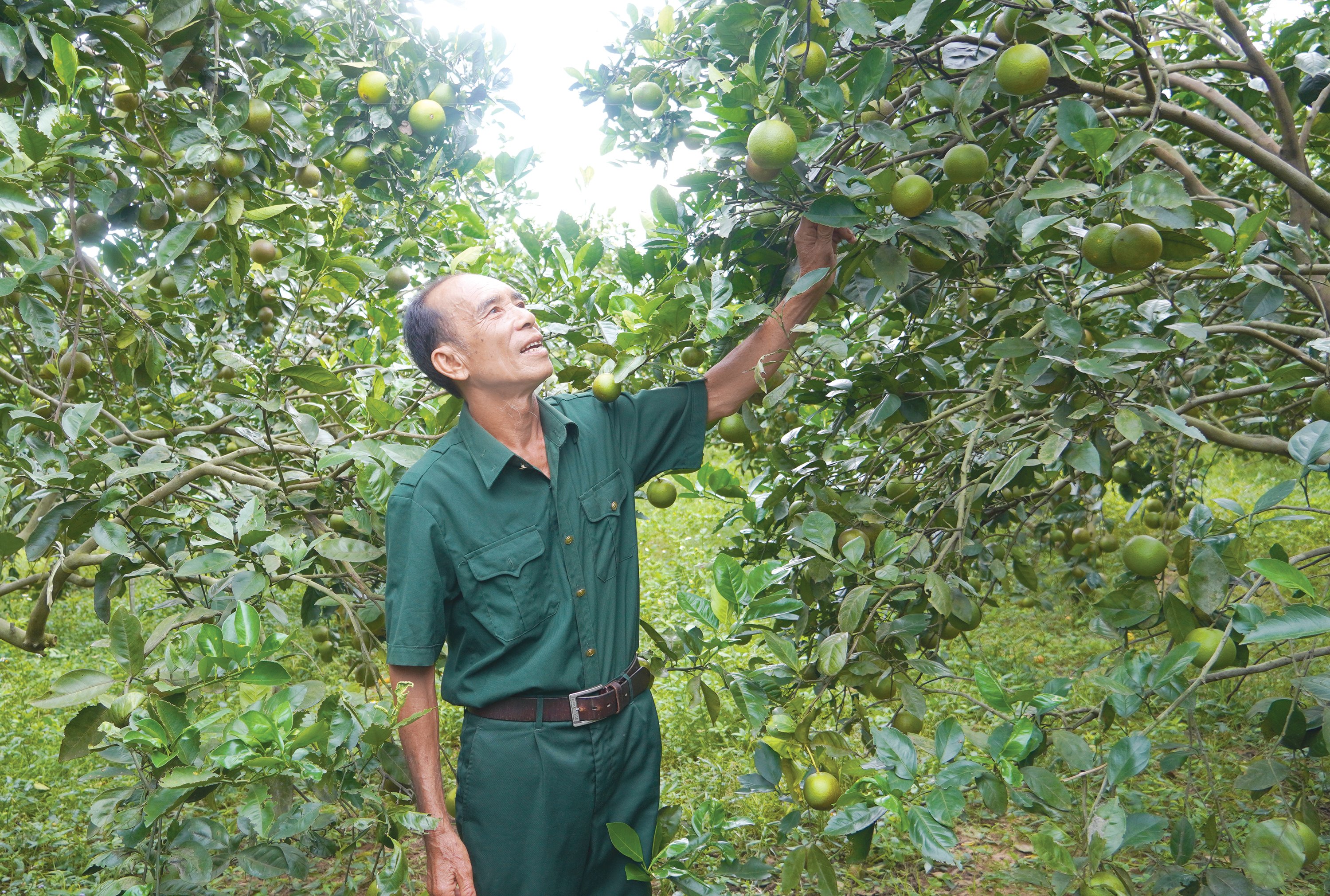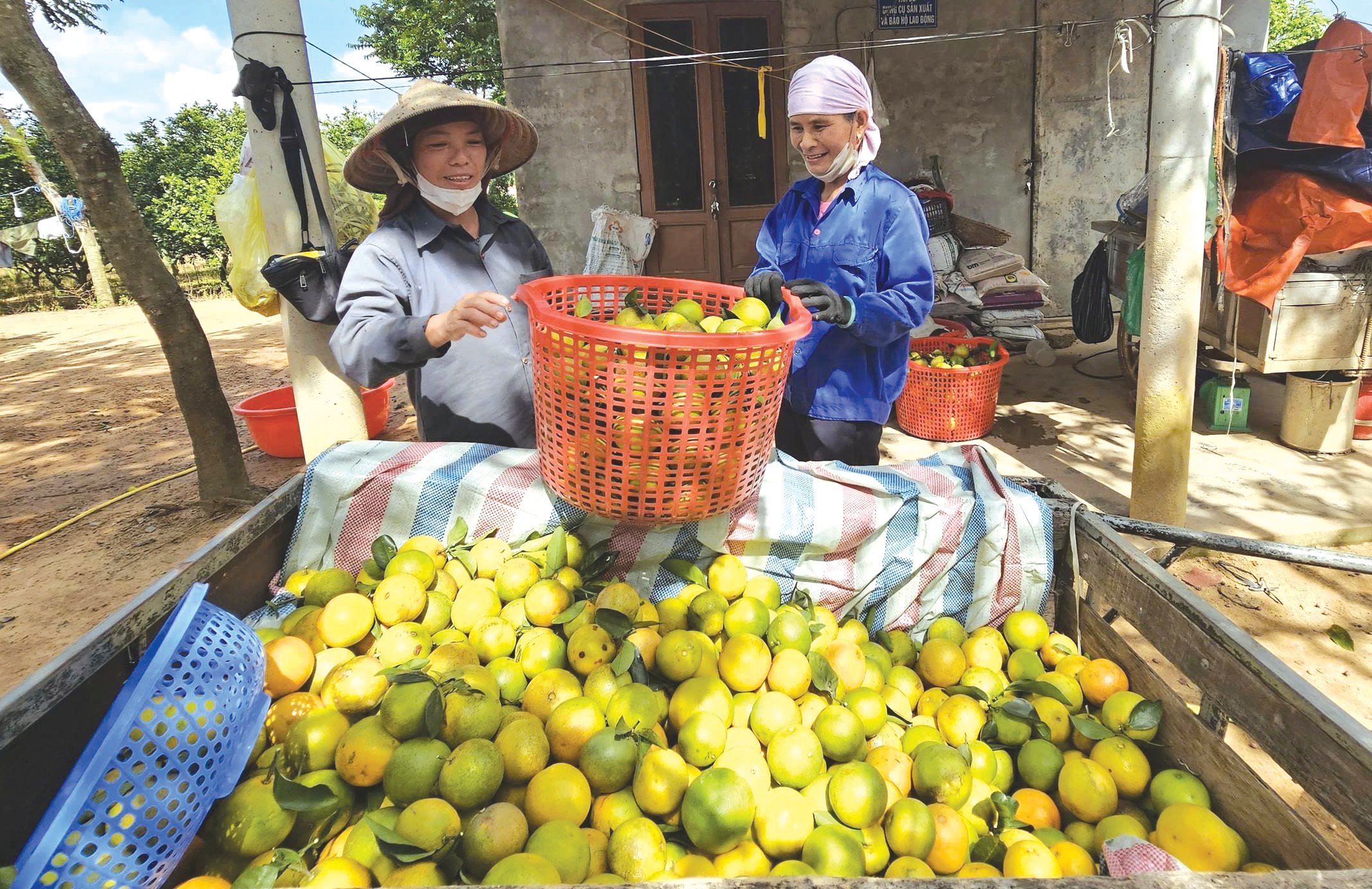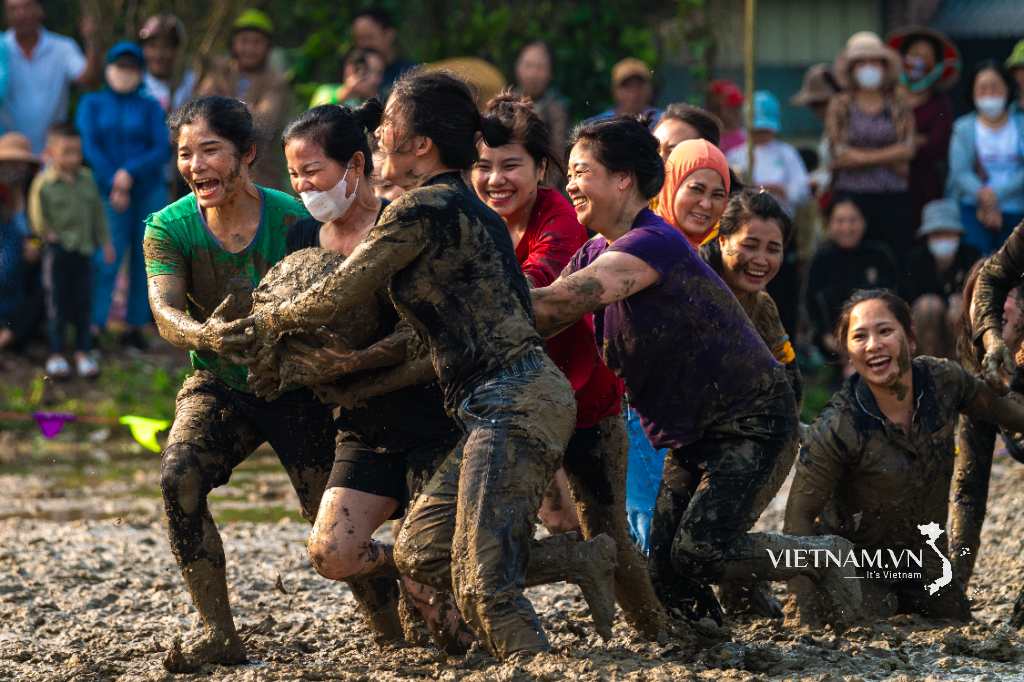Getting rich thanks to rubber trees.
In his spacious house in Phu Quy residential area, Mr. Be Van Mai began his story. His father was a Nung ethnic minority from Cao Bang province. After participating in the resistance war against the French, he followed his wife to live in Quang Binh province (formerly). Following in his father's footsteps, in 1978, the young Nung man enlisted in the army at Brigade 215, Armored Command. After being discharged in 1982, he got married and worked as a tractor driver at the Viet Trung State Farm. Back then, his family's life was extremely difficult and impoverished, with two children born one after another, and none of his siblings were well-off.
In 1994, when the government launched a program to reforest barren hills, Mr. Mai applied to receive two hills, totaling 23 hectares, in Huu Nghi Hamlet (Nam Trach Commune) to plant rubber trees. “Every time I go back to my hometown in Cao Bang, I see people carrying sacks of soil up the limestone mountains to plant corn. Here, we have plenty of land, why should we suffer from poverty? When I received the two barren hills for production, there were still many unexploded bombs and ammunition left over from the war, and my relatives were all worried,” Mr. Mai shared.
|
Mr. Be Van Mai's orange orchard generates billions of dong in income every year - Photo: XV |
At that time, he invested all his savings in rubber cultivation. Two years later, his rubber plantation had taken shape. Under the rubber trees, he also planted watermelons to generate immediate income. After six years, the rubber trees began to yield a harvest, and from then on, his family gradually prospered. Mr. Mai recounted: “Back then, rubber latex was very valuable. Some days, my family earned tens of millions of dong from selling latex. Thanks to rubber, I was able to build a spacious house, get married, and build decent homes for my siblings and children. With the rest, I invested in my eldest son's education and settlement in Australia.”
Getting back on your feet after the storm.
While his business was thriving, the 2013 storm struck, destroying all of Mr. Mai's rubber trees. The price of rubber plummeted, plunging him into hardship. Undeterred, he tried planting crops like pineapples and cassava, but these didn't yield high economic returns. Therefore, in 2016, Mr. Mai visited the western provinces of Ha Tinh and Nghe An to observe orange cultivation models on hilly land. Afterward, he purchased V2, Khe May, and Long Vang orange varieties to plant experimentally on approximately 2 hectares.
Inside the farm, he planned each orange grove separately with wide pathways of about 4-5 meters to facilitate movement, fertilizer transportation, harvesting, and the application of machinery, while also limiting the spread of pests and diseases. “Between the grass, I dig holes to plant orange trees and fertilize the grass as well. When the grass grows tall, I use a mower to cut it, spreading the stalks evenly on the ground to cover and retain soil moisture. The grass decomposes gradually, enriching the soil with organic matter and creating a favorable environment for beneficial microorganisms to help the trees grow. Around the base of the orange trees, I apply organic fertilizer and use a drip irrigation system to allow the fertilizer to penetrate and nourish the trees, while also increasing soil fertility,” Mr. Be Van Mai shared.
|
Mr. Mai's oranges are grown organically, so traders come directly to his orchard to buy them - Photo: XV |
Thanks to his focus on organic and environmentally friendly farming practices, Mr. Mai's orange orchard thrives even during the summer, especially on long, hot days. When the first harvest of sweet oranges yielded high economic returns, Mr. Mai continued to expand his orchard using his chosen farming methods, gradually increasing the area to 4 hectares, then 6 hectares… rather than expanding rapidly, in order to better control the cultivation process.
By following this method, he has time to renovate his orchard, secure labor, and have enough produce to sell on the market. On average, his 6 hectares of oranges yield about 120 tons of fruit per year. The selling price to traders is around 20,000 VND/kg. Notably, thanks to organic farming, many traders have placed large orders for oranges since the beginning of the season, eliminating concerns about sales.
Through his persistent efforts in transforming barren hilly land into a prosperous farm, Mr. Be Van Mai has received numerous commendations and awards from the government and farmers' associations at all levels for his outstanding achievements in production and business. In 2025, Mr. Be Van Mai was one of three farmers in Quang Tri province to be honored with the title of "Outstanding Vietnamese Farmer".
Besides growing oranges on the hilly land, Mr. Mai also cultivates 1 hectare of lemons, 2 hectares of pepper plants, 2 hectares of cassava for raw materials, 0.5 hectares of timber trees, digs a 1-hectare fish pond, and raises 500 poultry per year... Thanks to careful planting and care, all crops and livestock thrive, yielding high economic returns. With this integrated farm model, Mr. Mai's family earns a profit of over 2.1 billion VND per year after deducting expenses.
According to Tran Tien Sy, Vice Chairman of the Vietnam Fatherland Front Committee of Quang Tri province and Chairman of the Quang Tri Provincial Farmers' Association: “Mr. Be Van Mai is a prominent, exemplary, and pioneering figure in the local economic development. Not only has he enriched himself, but he also actively shares his production experience, provides plant and animal breeds, and capital to farmers in the area. Through this, he contributes to spreading the movement of farmers competing in excellent production and business, and working together to get rich in the locality…”
Xuan Vuong
Source: https://baoquangtri.vn/kinh-te/202510/ti-phu-tren-dat-go-doi-8ae5287/






![[Photo] The Politburo, the Secretariat, and the Central Committee are introduced at the Congress.](/_next/image?url=https%3A%2F%2Fvphoto.vietnam.vn%2Fthumb%2F1200x675%2Fvietnam%2Fresource%2FIMAGE%2F2026%2F01%2F23%2F1769156522913_11.jpeg&w=3840&q=75)

![[Photo] Portraits of the 19 members of the Politburo of the 14th Party Congress](/_next/image?url=https%3A%2F%2Fvphoto.vietnam.vn%2Fthumb%2F1200x675%2Fvietnam%2Fresource%2FIMAGE%2F2026%2F01%2F23%2F1769161873355_z7460119485980-304d85fe10d12298f1db614b0d2aa6bc-jpg.webp&w=3840&q=75)







































































































Comment (0)